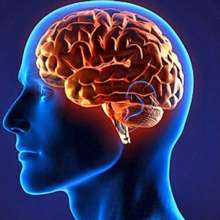Clinical Neuroscience of Addiction: Neurobiological Disruptions and Translational Models of Social Dysfunction

Background: A comprehensive understanding of the neurobiological substrates that modulate social behavior is essential for identifying etiologies and proposing effective approaches to social dysfunction and addiction. Rather than relying on speculative or metaphysical premises, this framework is based on measurable neurological alterations resulting from chronic environmental stress and early relational deficits. These conditions may lead to maladaptive engrammatic patterns and dysregulated neurocircuitry, with direct implications for the emergence of compulsive behaviors. Aims: This study aims to propose a conceptual refinement in the field of clinical neuroscience, with emphasis on the integration of addiction medicine within a neuroevolutionary and precision-based model. Methods: The methodological approach combines descriptive observational analysis with a neuroethological perspective, incorporating data from peer-reviewed literature in behavioral neuroscience and neuroimaging studies (fMRI), focused on the identification of patterns consistent with dysregulation in dopaminergic and prefrontal-limbic pathways. Conclusion: Based on consistent neuroscientific parameters, we delineate a structured framework to interpret addiction-related phenomena, introducing a neurobiologically grounded model that contributes to clinical and theoretical advancement in the understanding of addictive behaviors.
Notícias Mais Vistas
São as atitudes que revelam se o seu amor é verdadeiro, não, um simples Eu Te Amo!”
Visualizações: 61487
"Intolerância religiosa é o resultado da limitação de conhecimento", diz o filósofo Fabiano de Abreu
Visualizações: 9188
Filósofo membro da Mensa aponta características de pessoas com alto QI
Visualizações: 9133
Filósofo e pesquisador Fabiano de Abreu dá dicas a candidatos das eleições 2018: "Não seja nem se pareça um político"
Visualizações: 8309






